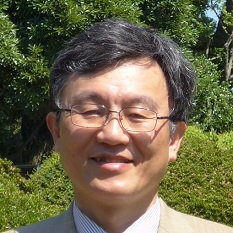Specially Appointed Professor, Institute of Economic Research, Hitotsubashi University
【Profile】
After working for eleven years as a researcher and economist in the Japanese government and at J.P. Morgan, Takashi Oshio started his academic career from 1994 and has been serving at Hitostubashi University as a professor in 2009-2024, and as specially appointed professor since 2024, at the Institute of Economic Research. He obtained a Ph. D. in international public policy from Osaka University in 2002. His research has largely focused on social security, income distribution, education policy, and other issues related to public finance. For health and medical issues, his interests are in public health, social epidemiology, and occupational health, all expected to make a great contribution through an interdisciplinary approach. He has published several journal articles in these fields and has published more than ten books in Japanese, including Welfare Analysis of Income Redistribution (2010, Nihon Hyoronsha) and Determinants of Happiness (2014, Nikkei Newspaper Press), and Social Determinants of Health (2025, Iwanami Shoten).
【Committee service, etc.】
April, 2020 - present Chairperson of Central Social Insurance Medical Council
【Recent Publications】
- Takashi Oshio and Ruru Ping, “Can cessation of caregiving for parents relieve family caregivers’ psychological distress? A longitudinal study using 17-wave nationwide survey data in Japan,” Journal of Epidemiology, 2025, 35 (4), 187-194. https://doi.org/10.2188/jea.JE20240190
- Takashi Oshio, Kemmyo Sugiyama, and Toyo Ashida, “Informal caregivers’ benefits of residing in a neighborhood with high social participation: a multilevel analysis in Japan,” Applied Research in Quality of Life, 2025, 20, 161-175. https://doi.org/10.1007/s11482-024-10399-6
- Shizuka Shimabukuro, Takashi Oshio, et al., “A pragmatic randomized controlled trial of the effectiveness and cost effectiveness of Well Parent Japan (WPJ) in routine care in Japan: the Training And Nurturing Support FOR Mothers (TRANSFORM) study,” Journal of Child Psychology and Psychiatry, 2024, 65 (12), 1624-1637. https://doi.org/10.1111/jcpp.14007
- Takashi Oshio, Kemmyo Sugiyama, and Toyo Ashida, “Can social participation reduce and postpone the need for long-term care? Evidence from a 17-wave nationwide survey in Japan,” Applied Research in Quality of Life, 2024, 19, 1293-1308. https://doi.org/10.1007/s11482-024-10288-y
- Takashi Oshio, “Evolution of psychological distress with age and its determinants in later life: evidence from 17-wave social survey data in Japan,” BMC Public Health, 2024, 24, 2377. https://doi.org/10.1186/s12889-024-19912-w
Detailed profile (HRI: Hitotsubashi Researchers Information)
